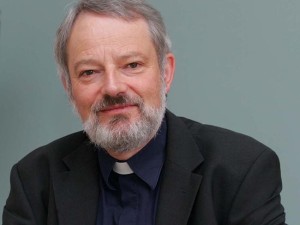
By Sarah Mac Donald - 30 July, 2015
 Bishop Kevin Doran of Elphin has paid tribute to the literary genius of WB Yeats.
Bishop Kevin Doran of Elphin has paid tribute to the literary genius of WB Yeats.
In a homily preached at St Colmcille’s Church in Drumcliff last Sunday to mark the opening of the Yeats International Summer School and the 150th anniversary of the poet’s birth, Bishop Doran said Yeats had identified one of the major challenges of our culture today, namely the lack of permanence and continuity.
“We are defined as much by our transience as by anything else; we are mobile in our careers, we require mobility in our technology, we accept and, perhaps, expect mobility in our domicile and even in our key relationships.”
Although Yeats came from an orthodox anglican background, he was not, the Bishop suggested, “what one would describe as a mainstream Christian. He read widely in world religions and seems to have drawn on the wisdom of all of them, as well as dabbling in the occult”.
The result is a poetry rich in mystery and symbolism.
“One of the great gifts that artists offer in every generation is the possibility of capturing and expressing a culture in words and images,” the Bishop stated.
He recalled Pope John Paul II’s 1999 Letter to Artists in which he said, “true art has a close affinity with the world of faith, so that, even in situations where culture and the Church are far apart, art remains a kind of bridge to religious experience”.
On the meeting point of faith and art, Dr Doran said the artist draws our attention to the mystery, but it is only by faith that we penetrate the mystery and encounter the One who is by his very nature, Good and Beautiful and True.
Discussing the connection between faith and poetry, Dr Doran said the connection is “mystery” but that the approach of many to mystery today “is more often to try out a whole range of experiences, trying to find something that will make us happy”.
This is a culture in which commitment to any one project or any other person is “very challenging”, he observed.
“It seems that only a personal encounter with the mystery of a God who loves us can restore our sense of purpose and our sense of direction.”
He also noted that though Yeats was born into the Church of Ireland, the poet’s two sisters, Lily and Lolly, had produced the vestments which were used at the International Eucharistic Congress in 1932.